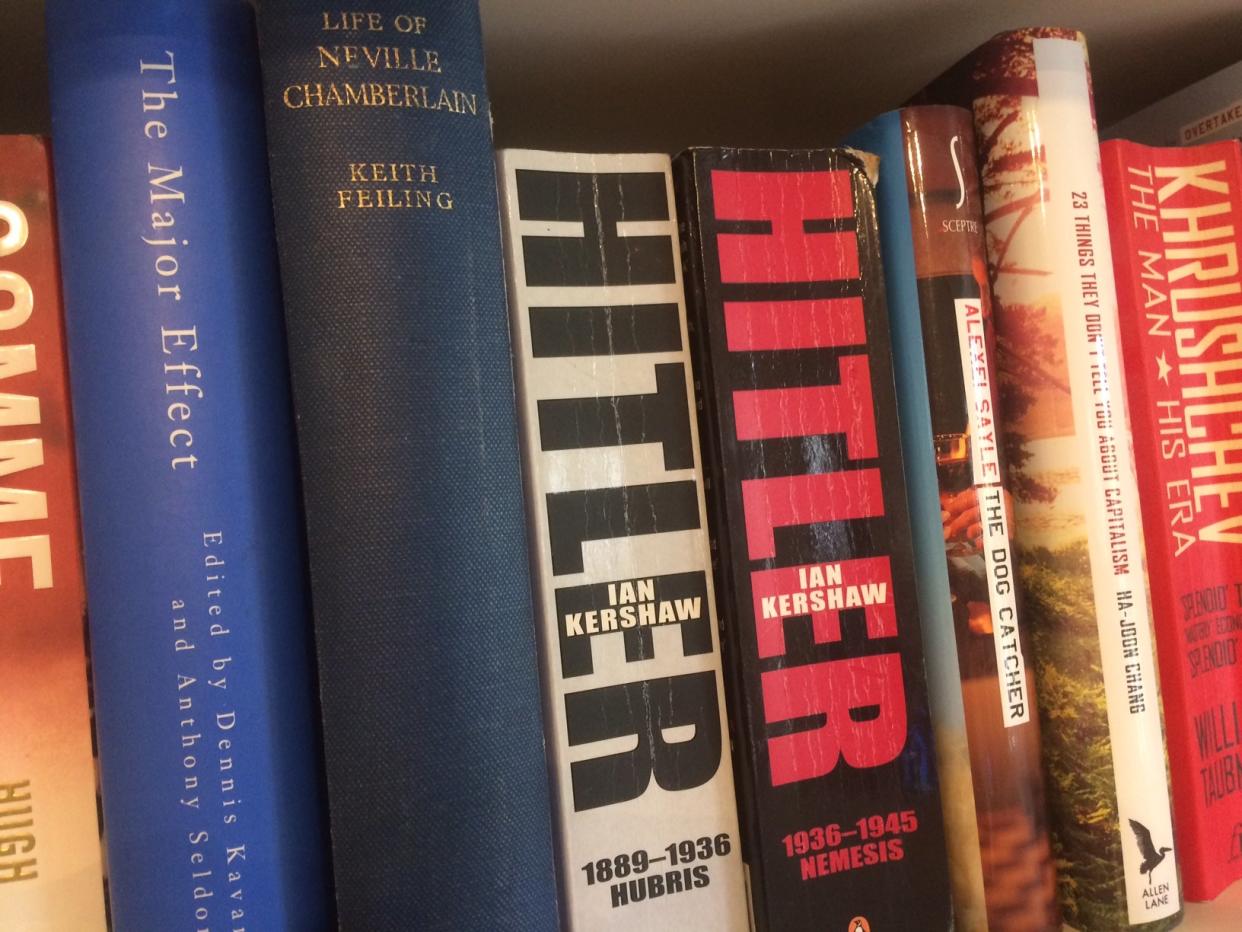Don't judge me by my bookshelves, which I did rearrange before my first Zoom call

I have a bookish confession to make. Well, a couple. First, just like Michael Gove and many others, I had a copy of Ian Kershaw’s brilliant biography of Adolf Hitler on my bookshelves.
“Had” because (second confession), I decided to replace the two-volume work when I realised people might be able to see it when I join Zoom meetings and draw the wrong conclusions. This was some time before Mrs Gove, Sarah Vine, tweeted the “surreal” image of her bloke on TV surrounded by books about other titans of history – Thatcher, Napoleon, Rommel etc.
For me, “Hitler” was a risk too far, and it was replaced by This Blessed Plot, Hugo Young’s masterful and impeccably Europhile account of Britain’s journey of destiny to join the European Union. Much more acceptable, you’ll agree.
A study of the 1975 European referendum (the one that went the “right” way”) filled the remaining gap. I can confirm that John Major, Neville Chamberlain, Alexei Sayle, Ha-Joon Chang (Cambridge economist) and Nikita Khrushchev, who’d been uneasily keeping the Fuhrer company, survived my literary mini-putsch.
On the whole, I tend to the view that just as you can’t judge a book by its cover, you can’t judge someone on their bookshelves – though some would wish you to do so. Indeed, I suspect that in this age of remote TV interviews and video conferencing, some image-conscious folk will have “dressed the set” with a quantity and quality of volumes that may not necessarily have been read.
It reminds me an old Tony Hancock show in which he seemed to think that merely by surrounding himself with a vast collection of encyclopaedias he would absorb the knowledge within through a process of osmosis, and need not go to the bother of opening them.
Unlike Gove, though, I don’t think I could offer Holocaust denier David Irving shelf space, even as a curiosity. I don’t happen to have a copy of Mein Kampf, though I’ve read bits of it to understand the typical antisemitic mindset that prevailed in the Austria of Hitler’s early years, and that’s enough of it, even as an important historical artefact.
I’m not keen on having that around the house either, and, in all frankness, I’d also draw the line at Salman Rushdie’s Satanic Verses, and well understand why it got burned. Sometimes, I suppose, you can judge someone by what books they won’t have on their shelves, so to speak, and that’s not a bad thing.
Read more
Tracking the coronavirus outbreak around the world in maps and charts
When can we really expect coronavirus to end?
Everything you need to know on supermarket delivery slots
The dirty truth about washing your hands
Listen to the latest episode of The Independent Coronavirus Podcast

 Yahoo News
Yahoo News 
